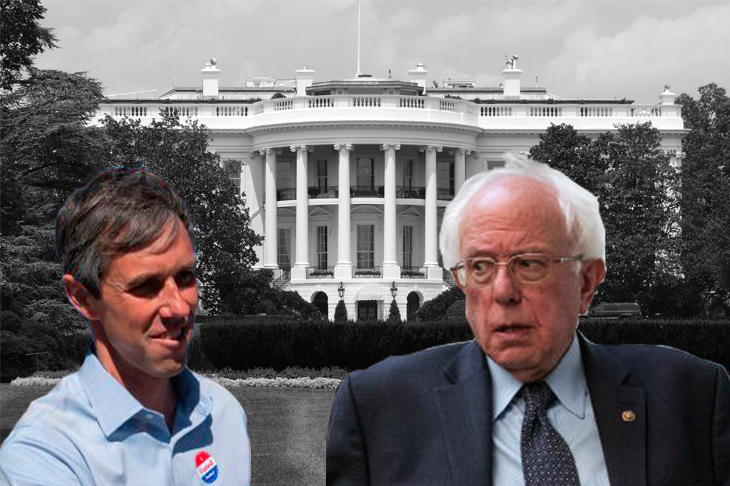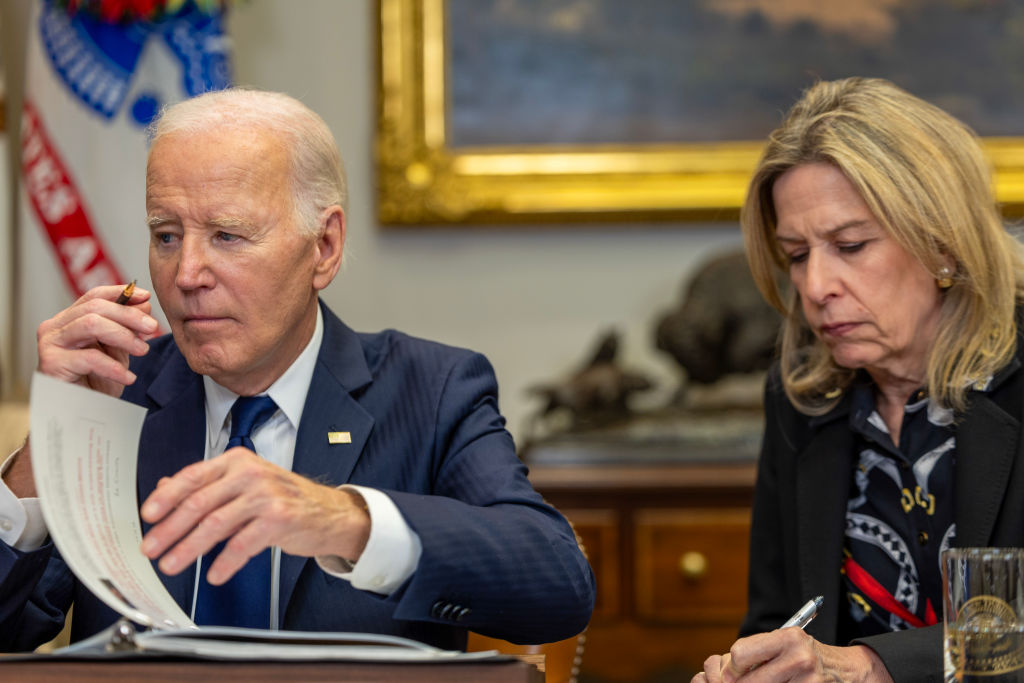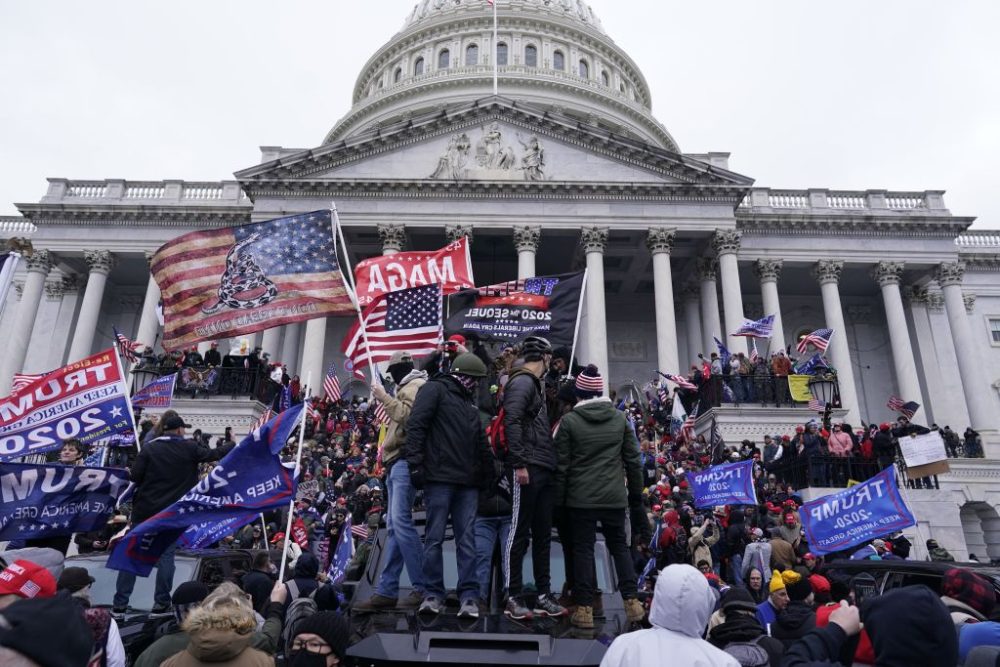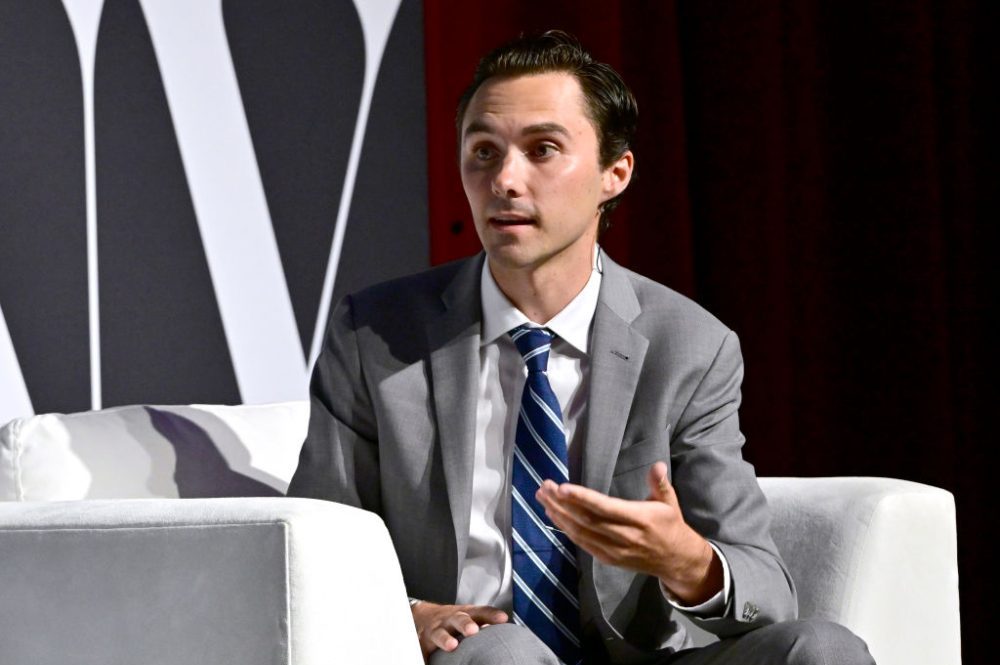The first micro-scandal of the Bernie Sanders 2020 presidential campaign has already erupted, and he hasn’t even formally declared he’s running yet. Appearing on CNN last week, Sanders was asked about a report in the New York Times that chronicled the ways in which the 2016 version of his campaign allegedly failed to respond to sexist discomforts experienced by female staffers. Pressed if he had been aware of these apparent issues, Sanders reacted curtly: ‘I was a little bit busy.’
One of the allegations detailed in the NYT article was a staff member complaining that she had been saddled with suboptimal lodging arrangements ahead of the Illinois primary. ‘I was shaking with fear,’ the staffer reported, having been subjected to ‘makeshift living accommodations’ while staying in Chicago. The woman relayed her apprehensions to a superior, and presumably the accommodations were then altered to her satisfaction. That, at least according to the NYT’s accounting, appears to have been the full extent of the incident.
So why would anyone assume that Bernie Sanders himself should have been aware of what amounted to a sleeping quarters snafu involving low-level personnel? Awkward lodging situations are trivially common in chaotic political campaigns. Sure, if anyone feels uncomfortable with their accommodations for whatever reason, that’s perfectly understandable and should be addressed; apparently, in this instance it was promptly addressed. Why, then, would such a curiously minor episode be construed as somehow reflective of endemic sexist neglect within the campaign – complete with questions about what Bernie knew, and when he knew it? Was he a teacher supervising a class trip, or a presidential candidate?
The NYT report contained all kinds of other faulty presumptions and borderline bad-faith insinuations, so it’s not surprising Sanders would have responded to it with some mild dismissiveness. After all, he has been rendering vehement critiques of mainstream media pathologies since at least the 1970s, when he was writing for alternative newspapers and appearing on Vermont public access TV to complain about how distorted journalistic priorities undermine civic health.
The mode of critique he championed then has somewhat fallen out of favor in the era of Trump, with reporters employed by giant corporations routinely valorized as the last guardians of a flailing democracy. (Some of them, comically, were recently invited to lower the Times Square Ball on New Year’s Eve on behalf of their supposedly beleaguered profession). But Sanders has never taken this rose-colored view of the press, often ridiculing it as uninterested in ordinary Americans’ plight. And in the case of this particular NYT report, he would have been more than justified in dialing up the cynicism.
For one thing, authors Sydney Ember and Katie Benner set the tone in their piece by matter-of-factly referencing the phenomenon known as ‘Bernie Bros,’ a phantom threat confabulated by dishonest media scolds in the heat of the 2016 primaries.
The theory of the ‘Bro’ menace posited that Sanders supporters were uniquely virulent in their online conduct, and that for vaguely sexist reasons they were motivated to attack unsuspecting women with special aggression – most notably Sanders’s chief opponent, Hillary Clinton. The entire thing was almost entirely bogus, being premised on a host of fallacious assumptions that usually fell apart upon minimal scrutiny. Incidents cited by ‘Bro’ alarmists as examples of heinous online trolling were often flagrantly mischaracterized, exaggerated, or even sometimes flat-out fabricated. But that didn’t stop proven media fantasists from using the new trope to fuel political grudges, and eventually the meme was even used, incredibly, to castigate the candidate himself – as if Sanders was secretly commanding platoons of Twitter users and Reddit commenters to wage a brutal internet war on women.
The whole issue was mind-bendingly absurd from the outset, and also neglected the empirical reality that the most committed Bernie-supporting demographic in 2016 was young women, a fact which would belie the ‘Bro’ label. With that in mind, the NYT reporters’ decision to cite this asinine term in the framing of their piece was probably a ‘tell’ for Bernie that he should treat the allegations contained therein with skepticism.
The fallout was predictable and tedious: overwrought social media consternation about Bernie’s supposed problem with sexism, calls for him to get a grip and forego any 2020 run because of the ill-defined sexism problem, and finally additional reporters chasing him around the Capitol with cheap follow-up questions related to his purported sexual harassment scandal. Not surprisingly, he seems have responded to these further chidings with more brusqueness.
Of course implementing reasonable protocols to minimize genuine sexist harms in presidential campaigns is warranted, and by all accounts Sanders has taken steps to pursue this. But the way these allegations were instrumentalized by the NYT and Bernie’s opponents is undeniable: they want to force him from the race on ginned up pretenses, interwoven with a larger narrative about how his race, gender, and age make him prima facie unacceptable for Democrats seeking a nominee that checks all the correct diversity boxes. (Oddly, Bernie prospectively being the first Jewish nominee never seems to be considered.)
In the grand scheme such a trifling mini-scandal might seem like little more than a passing nuisance, but it actually does say much about how Democratic candidates are being filtered through the 2020 perception-algorithm. For one thing, compare the popular portrayal of Sanders with that of say, Beto O’Rourke. The now-unemployed O’Rourke (having entered the jobless ranks at noon Eastern standard time on January 3) is touted as fresh-faced, dynamic, and youthful: all qualities that pundits baselessly assume are yearned for in the populace. But beyond the demographic appeal, O’Rourke’s greatest attribute among his new legion of boosters is the nebulous sense of ‘optimism’ he seems to project. Unlike Sanders, O’Rourke has not cultivated a ‘brand’ predicated on attacking other Democrats (although he did defeat a Democratic incumbent when he was first elected to the House in 2012.)
Where Bernie makes Democratic chieftains feel uneasy and defensive, O’Rourke makes them feel wonderful about themselves. He’s not scornful or cynical, but rather ascribes to the ‘better angels of our nature’ mode of political rhetoric that traditionally makes both party operatives and political journalists swell with tearful pride.
To put it in cliched terms, Beto is a ‘uniter’ – calling on citizens of all stripes to join hands in pursuit of some ill-defined common cause – while Bernie is definitionally a ‘divider,’ having named specific factions of the citizenry (including elements of the Democratic Party) as implacable impediments to the change he wishes to enact. Those opponents would include billionaires, the vast majority of the conservative movement, and the entrenched Democratic establishment interests that Bernie has attacked with such regularity. Some dead-enders among the remaining pro-Hillary forces still blame Bernie for throwing the election to Trump with those shameful attacks, so they want to preemptively ruin a second run by fomenting a series of scandals that undermines him not on policy grounds, but on identity grounds – and there’s no better way to further that quest than an exposé on purported sexism in the NYT.
Bernie represents hurtful internal factionalism for Democratic officials who are hell-bent on doing everything possible to oust Trump; for them, worrying about intra-party disputes is an unconscionable distraction. With Beto, all the sour memories of 2016 are flushed away. Beto is not taking up arms against the entrenched power centers of the Democratic Party. He is not scorning the premises of media questions, and in fact has followed the typical line of heralding journalists as solemn defenders of truth and valor. Imaginary problems pertaining to sexism are not being concocted to stymie Beto. Part of this has to do with the peculiarities of the two men’s personal styles, but mostly it can be traced back to the sense that Beto generates comfort and safety among Democrats, and makes them feel ‘inspired.’ Conversely, Sanders generates discord, because he simply views the party as a vehicle to enact his goals, and has no special attachment to the party itself.
Sanders’s entire career has been predicated on identifying chasms in consensus political opinion, and pointing the finger at contemporary liberals for their role in holding up this failed consensus. Famously, he takes personal offense at even being associated categorically with liberalism. ‘I am not now, nor have I ever been, a liberal Democrat,’ he once declared, and his resistance to formally register as a member of the party scandalizes Democratic loyalists to this day. Beto, on the other hand, sweetly soothes all these tensions with inspiring platitudes and plaintive social media posts. So that’s why he’s being boosted with such vigor, while Bernie is getting chastised about lodging arrangements in the NYT.

























